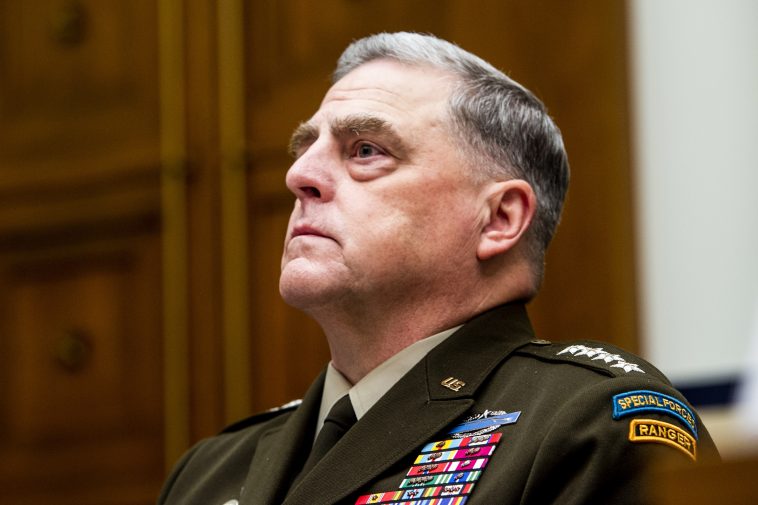The Biden administration is reportedly considering issuing a pre-emptive pardon to retired General Mark Milley, former Chairman of the Joint Chiefs of Staff, due to concerns about potential legal actions from the incoming administration of President-elect Donald Trump. This deliberation arises from Milley’s previously disclosed secret communications with Chinese military officials during the final months of Trump’s presidency.
In 2021, it was revealed that General Milley had engaged in undisclosed phone conversations with General Li Zuocheng of China’s People’s Liberation Army both prior to the 2020 presidential election and following the events at the U.S. Capitol on January 6, 2021. Milley stated that these calls aimed to alleviate Chinese concerns about possible U.S. military actions during a period of heightened tension.
These actions attracted significant criticism, with some, including Senator Marco Rubio, accusing Milley of undermining then-President Trump. Trump himself labeled the communications as “treasonous,” suggesting that such actions would have historically warranted severe penalties.
The current discussions within the White House about a potential pre-emptive pardon for Milley are part of broader considerations to protect various officials who might face legal scrutiny under the forthcoming Trump administration. Other individuals reportedly under consideration for pardons include former Representative Liz Cheney, Senator-elect Adam Schiff, and Dr. Anthony Fauci.
As of now, President Biden has not publicly commented on these deliberations, and no official decisions have been announced. The situation remains dynamic, with ongoing debates about the implications and appropriateness of issuing such pre-emptive pardons.


